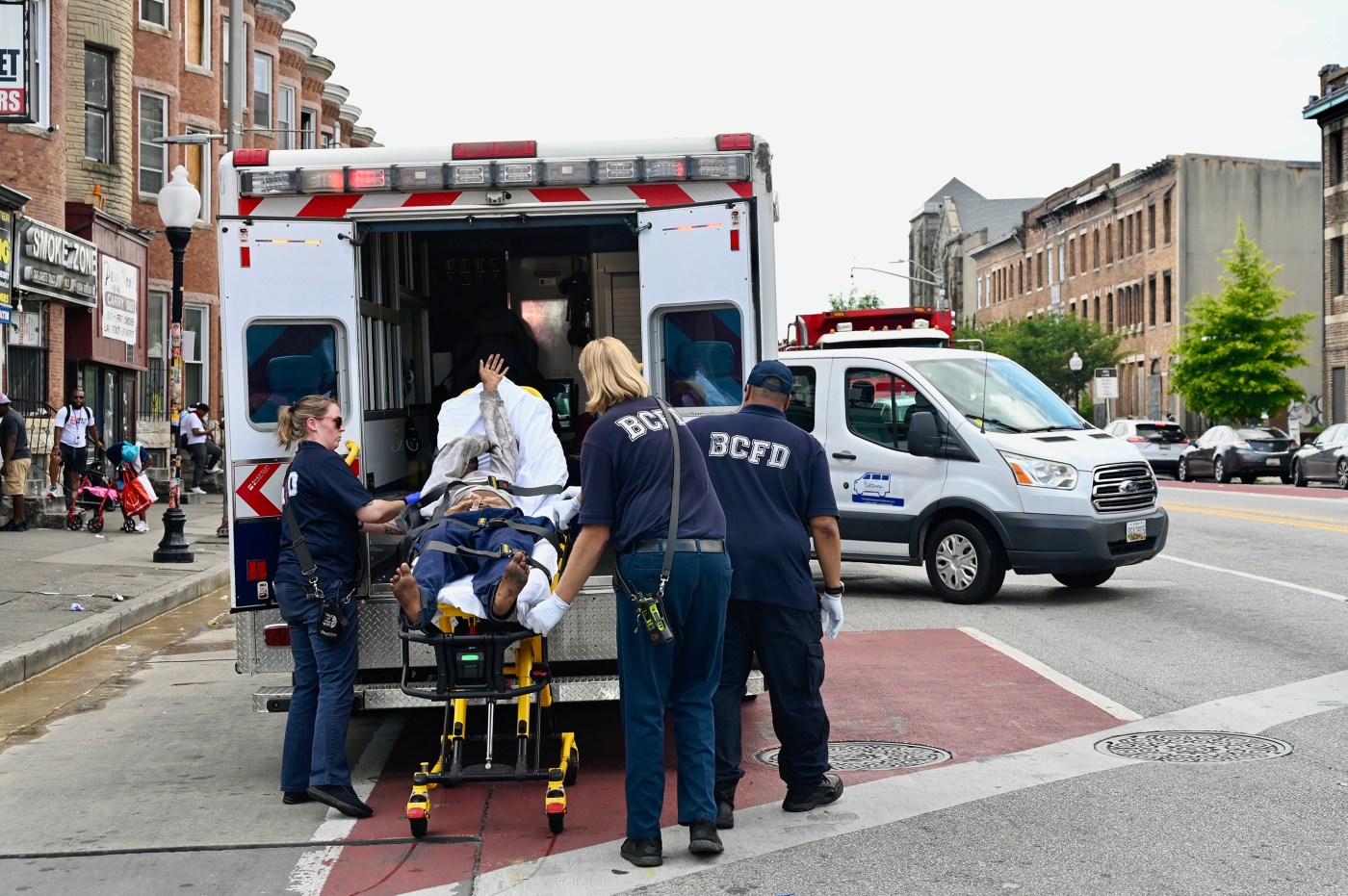Health
Baltimore’s Overdose Crisis Escalates: Urgent Call for Action

The opioid crisis has reached alarming levels in Baltimore, particularly in the Penn North neighborhood, where recent overdose incidents have underscored the urgent need for effective solutions. In just one week, 27 individuals experienced overdoses, a staggering statistic that has raised alarms among local officials and community leaders. The Baltimore Police Department reported the first wave of overdoses on July 11, 2025, followed by another surge on July 18, when emergency responders were called to multiple incidents along West North Avenue.
Efforts to combat this epidemic have been ongoing for years, with community activists and residents advocating for meaningful change. Christopher Anderson, a long-time Baltimorean and community advocate, has been vocal about the need for decisive action. He emphasizes that Penn North has long served as a focal point for drug-related issues, compounded by its history as the epicenter of the 2015 Freddie Gray protests. Despite the presence of law enforcement and community resources, drug dealing continues unabated in broad daylight.
Following the latest overdose incidents, Mayor Brandon Scott addressed the public, pledging expanded access to naloxone, 24/7 treatment facilities, and potentially mobile treatment centers. While these initiatives demonstrate good intentions, Anderson argues that they are insufficient to tackle the root causes of the crisis.
“Baltimore doesn’t need more press conferences; it needs a cleanup,” Anderson stated. “We require real-time intervention and accountability for those who are endangering lives.”
The escalating crisis has prompted calls for a more aggressive approach to law enforcement and community intervention. Anderson advocates for police accountability, drug court reforms, and comprehensive neighborhood restoration plans. He asserts that the opioid epidemic is not just a health issue but a profound societal challenge that requires immediate action.
At the federal level, there have been significant strides in addressing the opioid crisis. The HALT Fentanyl Act, signed into law by former President Donald Trump, classifies fentanyl-related substances as Schedule I drugs under the Controlled Substances Act. This legislative action aimed at curbing the influence of drug cartels has been praised as a necessary step in the fight against addiction.
The situation in Penn North illustrates a broader national crisis that demands urgent attention. As the community grapples with the fallout from the overdose epidemic, residents express frustration at the lack of effective solutions. Anderson concludes that it is vital to restore dignity to neighborhoods affected by drugs, insisting that the time for action is now.
“We need to clean up this corner and act decisively before more lives are lost,” he warned.
As Baltimore faces this critical moment in its battle against the opioid crisis, the community looks to its leaders for accountability, intervention, and a path forward.
-

 Science1 month ago
Science1 month agoNostradamus’ 2026 Predictions: Star Death and Dark Events Loom
-

 Technology2 months ago
Technology2 months agoOpenAI to Implement Age Verification for ChatGPT by December 2025
-

 Technology7 months ago
Technology7 months agoDiscover the Top 10 Calorie Counting Apps of 2025
-

 Health5 months ago
Health5 months agoBella Hadid Shares Health Update After Treatment for Lyme Disease
-

 Health5 months ago
Health5 months agoAnalysts Project Stronger Growth for Apple’s iPhone 17 Lineup
-

 Technology5 months ago
Technology5 months agoElectric Moto Influencer Surronster Arrested in Tijuana
-

 Education5 months ago
Education5 months agoHarvard Secures Court Victory Over Federal Funding Cuts
-

 Health5 months ago
Health5 months agoErin Bates Shares Recovery Update Following Sepsis Complications
-

 Technology7 months ago
Technology7 months agoMeta Initiates $60B AI Data Center Expansion, Starting in Ohio
-

 Technology6 months ago
Technology6 months agoDiscover How to Reverse Image Search Using ChatGPT Effortlessly
-

 Science4 months ago
Science4 months agoStarship V3 Set for 2026 Launch After Successful Final Test of Version 2
-

 Technology7 months ago
Technology7 months agoRecovering a Suspended TikTok Account: A Step-by-Step Guide





















